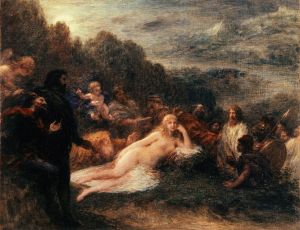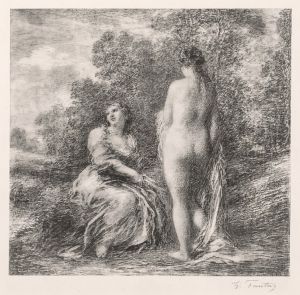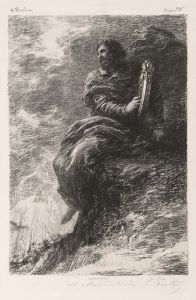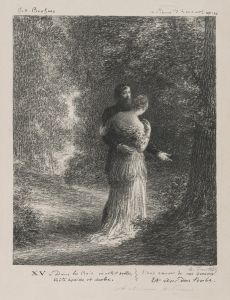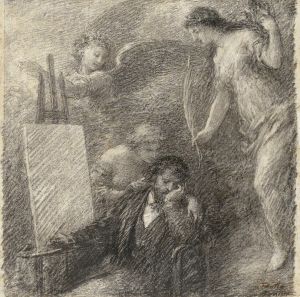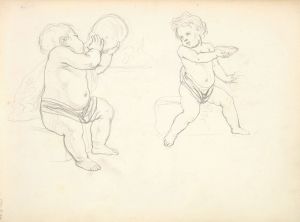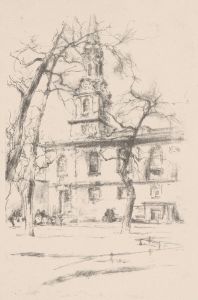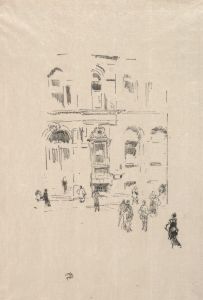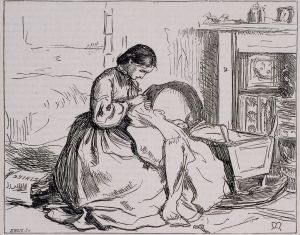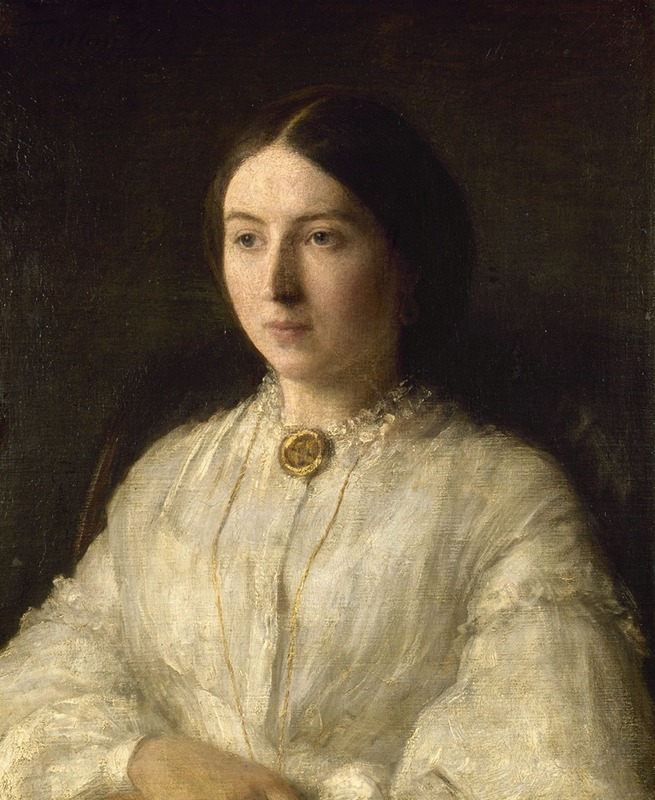
Portrait de Mme Edwin Edwards
A hand-painted replica of Henri Fantin-Latour’s masterpiece Portrait de Mme Edwin Edwards, meticulously crafted by professional artists to capture the true essence of the original. Each piece is created with museum-quality canvas and rare mineral pigments, carefully painted by experienced artists with delicate brushstrokes and rich, layered colors to perfectly recreate the texture of the original artwork. Unlike machine-printed reproductions, this hand-painted version brings the painting to life, infused with the artist’s emotions and skill in every stroke. Whether for personal collection or home decoration, it instantly elevates the artistic atmosphere of any space.
Henri Fantin-Latour was a renowned French painter known for his exquisite still lifes and group portraits. Among his notable works is "Portrait de Mme Edwin Edwards," which exemplifies his skill in portraiture and his ability to capture the essence of his subjects with subtlety and precision.
Henri Fantin-Latour was born on January 14, 1836, in Grenoble, France. He moved to Paris in 1850, where he studied at the École des Beaux-Arts and honed his skills by copying works in the Louvre. Fantin-Latour became associated with several prominent artists of his time, including Gustave Courbet and Édouard Manet, and was influenced by the Realist and Impressionist movements, although he maintained a distinct style that set him apart.
The "Portrait de Mme Edwin Edwards" is a testament to Fantin-Latour's mastery in capturing the personality and presence of his sitters. The painting depicts Mrs. Edwin Edwards, the wife of Edwin Edwards, a British painter and etcher who was a friend and patron of Fantin-Latour. The Edwards were part of a circle of artists and intellectuals in London, where Fantin-Latour spent some time and gained recognition for his work.
In this portrait, Fantin-Latour employs a restrained palette and a delicate touch, focusing on the sitter's expression and demeanor. The composition is simple yet effective, with the subject seated and gazing directly at the viewer. The background is understated, allowing the viewer to concentrate on the sitter's features and the subtle play of light and shadow on her face and attire. This approach is characteristic of Fantin-Latour's portraits, which often emphasize the individuality and inner life of the subject over elaborate settings or dramatic poses.
Fantin-Latour's portraits are noted for their psychological depth and the artist's ability to convey the character and mood of his subjects. In "Portrait de Mme Edwin Edwards," he captures a sense of calm and introspection, reflecting the sitter's poise and sophistication. The painting is a fine example of Fantin-Latour's ability to blend realism with a gentle, almost poetic sensibility.
Throughout his career, Fantin-Latour remained committed to traditional techniques and subjects, even as the art world around him embraced more avant-garde movements. His work was well-received in both France and England, and he exhibited regularly at the Salon in Paris and the Royal Academy in London. Despite his connections to the Impressionists, he preferred to focus on portraiture and still life, genres in which he excelled and which brought him considerable acclaim.
"Portrait de Mme Edwin Edwards" is part of Fantin-Latour's broader body of work, which includes numerous portraits of friends, family, and notable figures of his time. His ability to capture the essence of his subjects with sensitivity and precision has earned him a lasting place in the history of art. Today, his works are held in major museums and collections around the world, where they continue to be appreciated for their technical skill and emotional depth.
Henri Fantin-Latour passed away on August 25, 1904, in Buré, France. His legacy endures through his paintings, which continue to be studied and admired for their beauty and insight into the human condition. "Portrait de Mme Edwin Edwards" remains a significant example of his portraiture, showcasing his unique ability to blend realism with a subtle, introspective quality.






